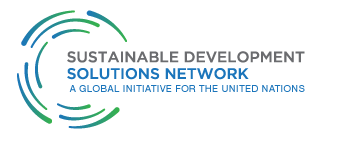Experts and high-level officials discussed specific ways to build mutually reinforcing processes on climate change and the post-2015 development agenda, on the sidelines of the UN General Assembly's high-level debate on means of implementation.
 10 February 2015: Experts and high-level officials discussed specific ways to build mutually reinforcing processes on climate change and the post-2015 development agenda, on the sidelines of the UN General Assembly’s high-level debate on means of implementation.
10 February 2015: Experts and high-level officials discussed specific ways to build mutually reinforcing processes on climate change and the post-2015 development agenda, on the sidelines of the UN General Assembly’s high-level debate on means of implementation.
The permanent missions of the Democratic Republic of the Congo, Peru, Sweden and Viet Nam and the Sustainable Development Solutions Network (SDSN) co-hosted the event on 10 February 2015, at UN Headquarters in New York, US. Moderator Minh-Thu Pham, UN Foundation, said the intersection between the two processes is “on everyone’s minds” and encouraged a more detailed understanding of their linkages.
Jeffrey Sachs, SDSN Director, said “sustainable development” means the holistic combination of economic advance, social inclusion and environmental sustainability, the greatest threat to which is climate change. Therefore, sustainable development and climate change are one and the same, while sustainable development is the more inclusive concept. With this in mind, the processes culminating in Addis, New York and Paris “should be viewed as one long, continuous, interconnected negotiation,” with the ultimate result of a new global framework for sustainable development. “It is one agenda; we have to succeed.”
On climate change, Sachs said the Paris Climate Change Conference (COP 21) is the world’s final chance to cap warming at two degrees Celsius – which is “the last guardrail against disaster.” Climate financing, meanwhile, should be secured at the Third International Conference on Financing for Development (FfD 3) in Addis Ababa; waiting until October will mean “panic” in Paris. He added the need to agree on net zero carbon by 2070, which is “not too complicated, it’s just not too pleasant.” The needed US$100 billion must be linked to official financing, not only markets; “this is very painful in the US right now, but so what?” He warned about the political role of oil companies in many countries. As for the SDGs, they must express agreement to whatever is agreed in Paris. Sachs added that the 17 SDGs should be reshaped into 12, by using “commas and conjunctions,” without losing any substance. The agenda should be an educational, advocacy document, not a technocratic one.
Isabella Lovin, Minister for International Development Cooperation of Sweden, said it is clear that none of the Sustainable Development Goals (SDGs) can succeed if humanity does not “forcefully address climate change.” But, she asked, does COP 21 also need the SDGs in order to succeed? Lovin argued that the SDGs put climate in a larger context than the numbers and technical terms characterizing UNFCC negotiations, and they explain why we must avoid dramatic climate change – because we want a fair, inclusive, sustainable, and dignified society.
Joe Colombano, Executive Office of the UN Secretary-General, said the concept of sustainable development allows for both eradicating poverty and addressing climate change at the same time. The opportunity provided by FfD3, he said, is critical to making sure the synergy can take place. He echoed the need for the world beyond New York to feel ownership for the new agenda.
Janos Pasztor, UN Assistant Secretary-General on Climate Change, said a key to greater coherence between the climate negotiations and post-2015 agenda is financing, and noted that US$100 billion is “peanuts; not what we need.” However, it can unlock the US$90 trillion that will actually achieve the needed changes. Pasztor prioritized integrating climate change throughout the SDGs, saying that if all of the targets that directly or indirectly relate to climate change can be met, it will be “a lot easier” for climate negotiators to reach an agreement.
In an interactive session, Colin Beck, Permanent Representative of Solomon Islands, said the two degrees Celsius cap leaves 100 countries behind, and stressed the Loss and Damage element. Ib Petersen, Permanent Representative of Denmark, expressed support for agreeing on climate financing in Addis. Katalin Bogyay, Permanent Representative of Hungary, called for “making the case outside the court,” to ensure people understand these issues are about them. [Event Programme] [IIDS RS Sources] [IISD RS Story on MOI Debate]